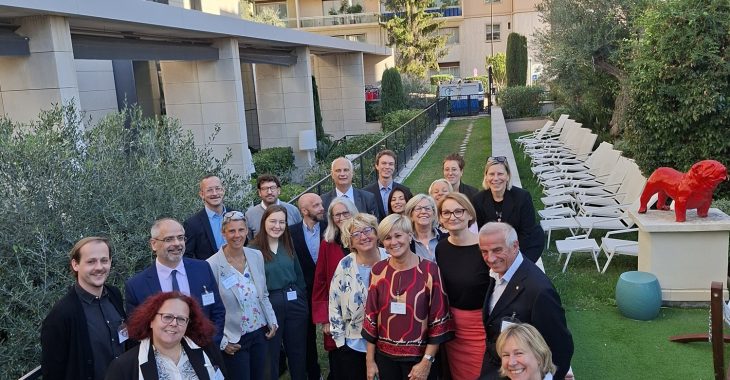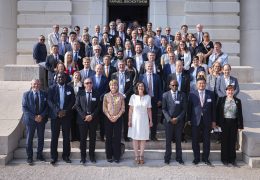Monaco Hosts the 39th Meeting of the “Compliance Committee” of the Alpine Convention

The countries that share this spectacular mountain range – Germany, Austria, France, Italy, Liechtenstein, Monaco, Slovenia, and Switzerland – met in Monaco on November 5 and 6 for the 39th meeting of the “Compliance Committee” of the Alpine Convention.
The objective of this meeting was to assess compliance with the commitments made under the Convention and its protocols.
The challenges facing the Alps are often transboundary in nature, and it is through cooperation that they can best be addressed.
A Party to the Convention since 1994, the Principality of Monaco is actively involved, alongside the seven other countries and the European Union, in efforts to promote sustainable development in the Alpine area.
This territory, characterized by a very specific geography and particular ecological fragility, requires rigorous coordination between supranational, national, and regional policies to ensure a balance between economic development and environmental preservation.
The Committee’s discussions focused mainly on the protection of soils in Alpine wetlands and peatlands, ecosystems that are particularly threatened throughout this mountain region, even though they play an essential role in terms of biodiversity and as carbon sinks.
Another major topic concerned the assessment of the compliance of deregulation measures adopted by the European Union under the Renewable Energy Directive (RED III).
In its report, the Committee concluded that these measures are compatible with the provisions of the Alpine Convention, while noting that they directly concern only EU Member States.
Finally, participants selected a new area of work focused on fragile Alpine zones.
This meeting was an opportunity to reaffirm Monaco’s and the Contracting Parties’ constant commitment to the Alpine Convention, promoting coordinated environmental governance and sustainable management of Alpine territories.




















